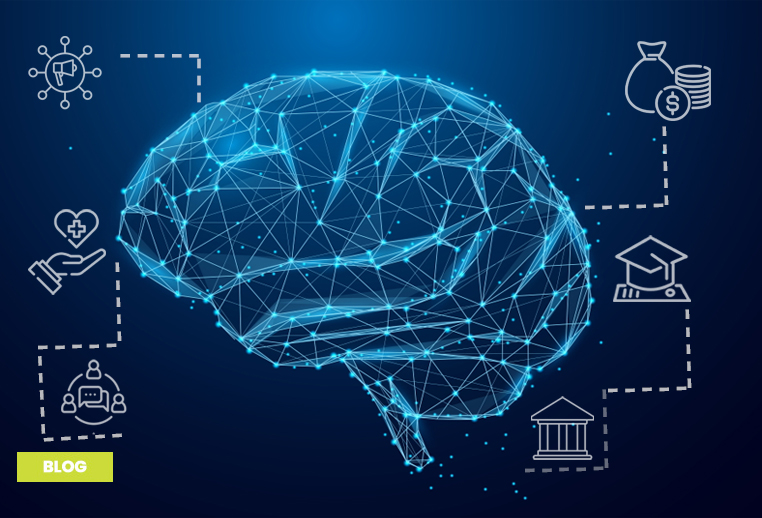The Future of AI: 5 Things to Expect in the Next 10 Years
19 July, 2024 AIDigital Transformation
Artificial intelligence (AI) is reshaping the landscape of technology, influencing every industry and aspect of our daily lives. As we look forward to the next decade, it’s clear that AI will continue to evolve and integrate further into our world.
Here are five things to expect in the future of AI over the next ten years, as highlighted by leading digital transformation expert.
AI-Driven Personalization
In the next decade, AI-driven personalization will reach new heights. Currently, AI algorithms analyze user data to deliver personalized experiences across various platforms, from social media to e-commerce. However, future advancements will enable even more precise and intuitive personalization.
Hyper-Personalization in Marketing: AI will refine marketing strategies by predicting consumer behavior with greater accuracy. Companies will be able to offer products and services tailored to individual preferences in real-time. This hyper-personalization will enhance customer engagement and satisfaction, driving brand loyalty.
Smart Homes and Cities: AI will play a crucial role in developing smarter homes and cities. From optimizing energy usage in households to managing traffic flow in urban areas, AI-driven systems will personalize environments to meet the unique needs of residents. This will lead to more efficient and sustainable living spaces.
Enhanced Human-AI Collaboration
AI will transform the way humans and machines collaborate. Instead of fearing job displacement, the focus will shift towards how AI can augment human capabilities, making our work more efficient and productive.
Augmented Workforce: In many industries, AI will handle repetitive and mundane tasks, allowing humans to focus on complex and creative problem-solving. For instance, in healthcare, AI can analyze medical data and suggest treatment options while doctors make the final decisions. This synergy will improve the quality of care and increase operational efficiency.
Advanced Human-Machine Interfaces: The development of advanced human-machine interfaces will facilitate seamless interaction between humans and AI systems. Technologies like brain-computer interfaces (BCIs) will enable direct communication with machines, opening up new possibilities for controlling devices and accessing information.
Ethical and responsible AI
As AI becomes more integrated into society, addressing ethical concerns will be paramount. Ensuring that AI systems are developed and deployed responsibly will be a significant focus for the next decade.
Transparent AI Models: To build trust, AI systems will need to be transparent and explainable. Users should understand how decisions are made and have the ability to question or challenge those decisions. This transparency will be essential in critical applications such as finance, healthcare, and law enforcement.
Bias Mitigation: AI algorithms are only as good as the data they are trained on. Efforts to reduce bias in AI will intensify, with researchers and developers working to create fairer and more inclusive systems. This will involve diverse data sets, rigorous testing, and continuous monitoring to ensure AI does not perpetuate existing inequalities.
Read More: Successful AI Integration Led by Digital Transformation Experts
AI in Healthcare
The healthcare industry will continue to benefit significantly from AI advancements. Over the next ten years, AI will revolutionize various aspects of healthcare, leading to better patient outcomes and more efficient medical practices.
Predictive Analytics: AI will enable predictive analytics to anticipate health issues before they become critical. By analyzing medical histories and genetic information, AI can identify individuals at risk for specific conditions and suggest preventive measures. This proactive approach will improve public health and reduce healthcare costs.
Personalized Medicine: AI will facilitate the development of personalized medicine, where treatments are tailored to the individual characteristics of each patient. By analyzing genetic data and other factors, AI can recommend the most effective therapies, minimize adverse reactions, and improve recovery rates.
AI in Education
Education will undergo a significant transformation as AI becomes more prevalent. AI-driven tools and platforms will enhance the learning experience, making education more accessible and effective.
Adaptive Learning: AI-powered adaptive learning systems will customize educational content to meet the needs of each student. These systems will assess individual strengths and weaknesses, adjusting the curriculum accordingly. This personalized approach will help students learn more efficiently and effectively.
Virtual Classrooms: The rise of virtual classrooms and online education will be accelerated by AI. AI-driven platforms will provide interactive and immersive learning experiences, making education more engaging. Additionally, AI can support teachers by automating administrative tasks and providing insights into student performance.
The Role of Digital Transformation Experts
Digital transformation experts will play a crucial role in guiding organizations through these changes. Their expertise in integrating AI into business processes will be essential for leveraging AI’s full potential.
Strategic Implementation: Digital transformation experts will help businesses identify the best AI technologies for their needs and develop strategies for implementation. This includes selecting appropriate AI tools, ensuring data readiness, and training staff to work effectively with AI systems.
Continuous Improvement: The rapid pace of AI development means that organizations must continuously adapt and evolve. Digital transformation experts will ensure that businesses stay ahead of the curve by regularly assessing and updating their AI strategies. This ongoing support will be vital for maintaining a competitive edge in the market.
Ethical Guidance: As organizations adopt AI, they will need to navigate complex ethical considerations. Digital transformation experts will provide guidance on responsible AI practices, helping businesses build trustworthy and fair AI systems. This ethical oversight will be critical for maintaining public trust and compliance with regulations.
Final Words
The future of AI promises to be exciting and transformative. Over the next ten years, we can expect significant advancements in AI-driven personalization, human-AI collaboration, ethical AI practices, healthcare innovations, and educational enhancements. Digital transformation experts will be at the forefront of these changes, guiding organizations to harness the power of AI responsibly and effectively. As we move forward, embracing AI’s potential while addressing its challenges will be key to unlocking a future where technology truly enhances our lives.
